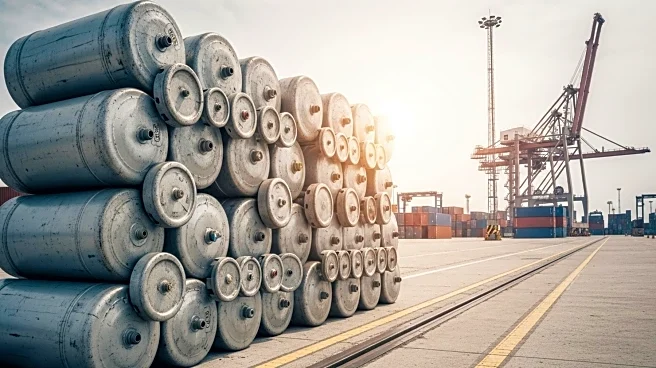What's Happening?
Propane is emerging as a cost-effective energy solution for U.S. ports facing trade uncertainty and fluctuating fuel prices. With lower and more predictable fuel costs compared to diesel and gasoline, propane provides significant savings for port terminal operators. The West Basin Container Terminal at the Port of Los Angeles has reported substantial cost reductions after switching to propane-powered equipment. Propane also offers reduced infrastructure and maintenance costs, improved equipment uptime, and resilience during power disruptions.
Why It's Important?
The adoption of propane as an energy source for ports is crucial in maintaining operational efficiency and cost control during uncertain economic times. By reducing fuel costs and enhancing equipment reliability, propane helps ports remain competitive and resilient. This shift could lead to increased investment in propane infrastructure and technology, benefiting the energy sector and supporting sustainable port operations.
What's Next?
Ports may continue to explore propane as a strategic energy solution, potentially expanding its use across various operations. Stakeholders will be monitoring the impact of propane adoption on port efficiency and environmental sustainability, as well as any regulatory changes that could influence energy choices.
Beyond the Headlines
The use of propane highlights the broader trend of seeking alternative energy sources to reduce dependency on traditional fuels. This shift may contribute to long-term sustainability goals and influence energy policies at both local and national levels.









